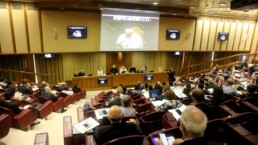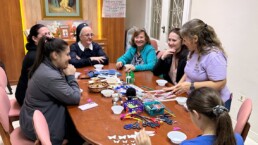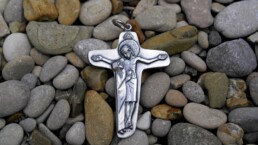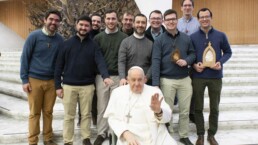Interview with Mrs. Marianne Mertke, international leader of the Schoenstatt Women’s Federation.
Mrs. Mertke, yesterday you participated in a meeting at the Synodal Hall, organized by the Dicastery for Laity, Family and Life. Have you attended this type of meeting before? Were there other Schoenstatters?
Mertke: This was the first time I was invited as International Leader of the Schoenstatt Women’s Federation. We are the only Schoenstatt community officially recognized by the Dicastery as a private association of believers. This recognition took place in 1996. Only officially recognized communities and movements were invited to this meeting. It was a real experience of the ever-growing universal Church.
What struck you most about the day?
Mertke: The diversity of the communities was immediately noticeable due to the difference in their missions, the way of working, the fruits born of the various charisms, as well as the diversity of languages and cultures.
I was surprised by the number of Africans and Asians in leadership positions. It was a true experience of the ever-growing universal Church. Even the founders of some communities participated, as was the case of Professor Andrea Riccardi, from San Egidio. Other communities already have third generation participants. The differences between the dynamism of the very young communities and the greater maturity of the older ones were immediately apparent.
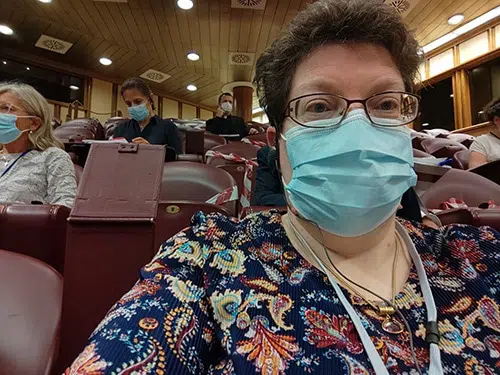
The charism is only fruitful when it is effective in the Church
The official report contains the details of the day. So, my question is directed to your experience, how you lived it.
Mertke: Of course, the unexpected visit of the Pope and his intentions are always particularly striking. But I was strongly touched by the theme of the Church’s self-reference. This also applies to the communities, including the Schoenstatt Movement. The charism is only fruitful when it becomes effective in the Church. As a community, one quickly spins around oneself and sometimes forgets what it was founded for.

The understanding of the foundational charism was discussed. A charism must mature in time and develop. We must trust in the Holy Spirit, who acts in history. This, of course, appeals to me since, as a community, we are certainly connected to the Holy Spirit.
Certainly, the Dicastery’s new decree of June 21 was also discussed. In general, the ter
m of office for the leaders of a community has been limited to five years.
Mertke: Yes, that’s right, now I have a better understanding of what the background of the decree is. It seems t
hat there are a number of difficult disputes and experiences with some leaders and their exercise of authority and power. There are communities in existential crisis. The topic was introduced through some comments made by various members of the Dicastery.
In the conversation that followed, Prof. Riccardi said that lay communities need a plain hierarchy (one that is closer to the people), and they need to see themselves more as a community on the move. He said it was very easy to copy the structure of religious communities, which is completely different from the lay ones.
I am taking with me the concept of dynamic unity
And what will you take away from the meetings here in Rome when you go home tomorrow?
Mertke: I still have to evaluate it a bit, but I can already tell:
There was a lot of talk about conversion and reconversion. Probably, a charism will only be really fruitful throughout different periods and eras if it always returns to its foundation and lives from its utmost core, however simple it may be.
Then I will be left with the idea that leadership is first and foremost a service to the person and that one should not be obsessed with structures, programs, offices, and administration.
I will also take with me the concept of dynamic unity. It is not that easy to achieve, and you never achieve it forever. It is a constant process that arises from polarities, a dynamic in which unity must always be sought.
And finally: It is good for me and for us as a Movement to be in communion with the Church. Perhaps we should even accentuate this part, to cultivate more actively the connection with the ways of the Church today. There is much to do there.
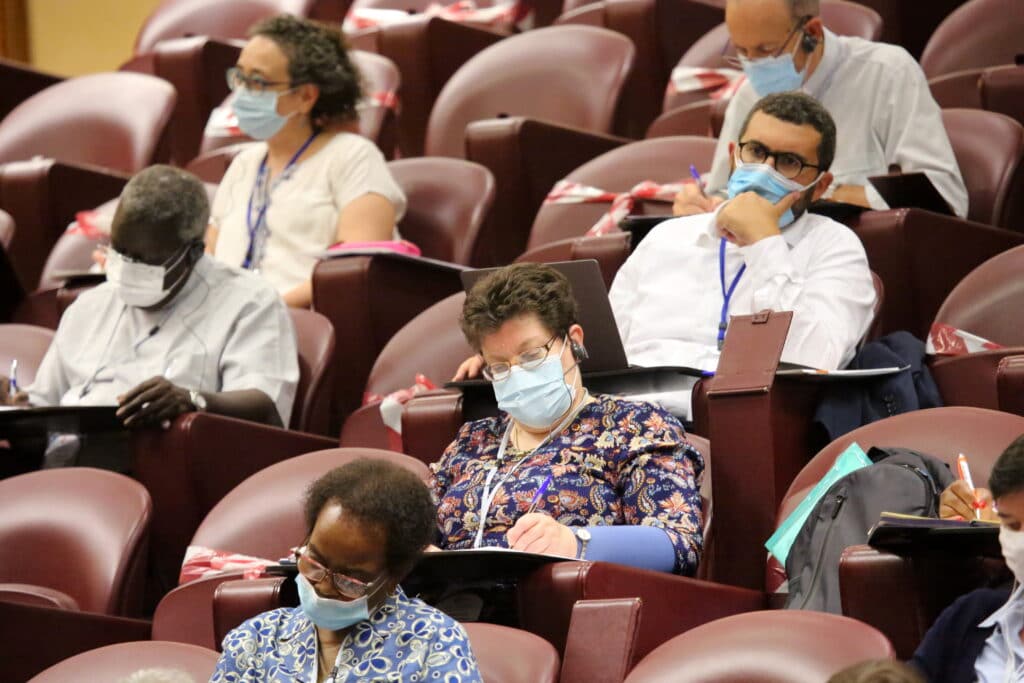
Related posts
April 3, 2024
Pope’s April prayer intention: ‘for the role of women’
Pope Francis' monthly prayer intention this April is for "the role of women." The Pope invited the Church to pray for this intention in…
February 29, 2024
Pope’s March prayer intention: For the martyrs of our day
In the new release from The Pope Video, Pope Francis requests prayers for the new martyrs of our day so that they might “imbue the Church…
February 9, 2024
An extraordinary surprise for Schoenstatt seminarians
This week, a surprise flooded the hearts of a group of young seminarians of the Schoenstatt Fathers with profound joy. Without expecting…

